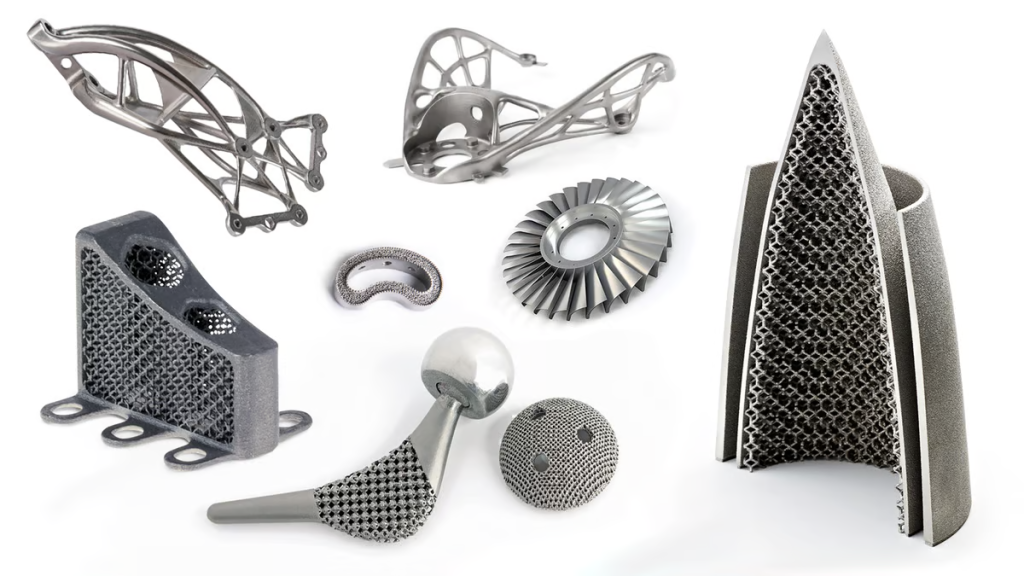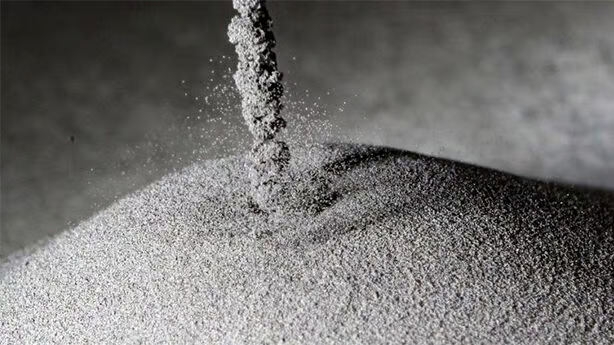
Titanium is one of the most commonly used metals in additive manufacturing, widely employed in aerospace, joint replacements and surgical tools, race cars and bicycle frames, electronics, and other high-performance products.
Titanium and titanium-based alloys are prized for high mechanical strength, a high strength-to-weight ratio, and better corrosion resistance than stainless steels. The material makes rockets and planes lighter, which saves fuel and increases payload capacity. It also makes for lighter weight electronics, such as smart phones and VR goggles. Likewise for medical implants. And, when you couple titanium’s inherent qualities with the unique features available when you 3D print with it, the advantages multiply.
3D printing enables more efficient manufacturing of this costly metal with lower consumption of raw material and lower waste. As an additive technology, metal 3D printing typically uses only the necessary amount of material for building a part, plus a relatively low amount for support structures.
3D printing also enables complex designs, such as internal channels, and hollow or lattice infilled parts to reduce weight, that are not possible with any other manufacturing method. Because there are no molds or tooling, titanium 3D printing enables cost-effective one-of-a-kind parts, such as patient-specific implants, prototypes, and research tools.
There are countless examples of 3D printed titanium advancing manufacturing, healthcare, space exploration, and much more.
Titaniums for Additive Manufacturing

Pure titanium is not typically used in engineering applications while it is common in the biomedical market for parts, such as knee and hip implants. Titanium-based alloys – controlled mixes of metal constituents that provide specific mechanical properties – are used in a wide range of industries that need to achieve very specific part properties.
- Titanium 6Al-4V, grade 5 is the most commonly used in titanium alloy in additive manufacturing and it is ideal for prototypes and functional parts in the aerospace and automotive fields and for military applications. It is also an excellent material for the manufacture of parts with complex geometries and precisions, and production tooling.
- Titanium 6Al-4V, grade 23 is a biocompatible alloy commonly used for medical implants and prostheses.
- Titanium Beta 21S exhibits a higher strength than conventional titanium alloys such as Ti-6Al-4V and has superior oxidation resistance and creep resistance compared to conventional titanium alloys such as Ti-15V-3Cr. Grade 21 Titanium has one of the lowest hydrogen uptake efficiency levels of any titanium alloy. It is an ideal candidate for orthopedic implants and aerospace engine applications. Beta titanium is widely use in orthodontics.
- Cp-Ti (Pure Titanium), grade 1, 2 are extensively used in the medical field for a wide range of applications due to the biocompatibility of titanium with the human body.
- TA15 is a near-alpha titanium-alloy with additives of aluminum and zirconium. The high specific strength of components made of TA15 combined with their high load-bearing capacity and temperature resistance enable them to be used for heavy-duty components in aircraft and engine construction.
